Immigration is discussed in Britain as if it is a disease that needs to be treated, rather than a fact of life that needs to be coped with, the new shadow Europe minister, Pat McFadden, has said. His remarks were designed to show he wants to see the party address globalisation, rather than pretend it is irreversible.
He said: “We have been talking about immigration as if it is some kind of disease that needs to be treated, rather than a fact of life that has to be coped with. There is an important difference between the rules around which a more global world operates, and trying to opt out of it. The thing for a progressive, centre-left party not to do is to cross the line into trying to opt out of these changes.”
Interviewed by Progress magazine, McFadden added: “We really have a choice: you can feed on people’s grievances or you can give people a chance. And I think our policies should be around giving people a chance, not a grievance.”
He insists his remarks were aimed at the nature of the national debate on immigration, and were not an attack on those in the Labour party who have called for a tightening of immigration controls or EU migrants’ access to tax credits, a proposal advanced by the shadow work and pensions secretary, Rachel Reeves, before being announced on Friday by David Cameron.
There is a “huge sense of loss”. McFadden said, felt deeply by many in the UK, and it is this that feeds the impulse to shrink from the outside world. “But the solution to allaying fears of a globalised world lies in giving people the tools to reap the benefits of that world. Our response has to be to make this connected world work better for people.”
Labour’s response to the prime minister’s proposals on Friday was mixed, with Douglas Alexander, the shadow foreign secretary, initially claiming Cameron had caved in to his backbenchers. Reeves said on BBC2’s Daily Politics show that the prime minister had not gone far enough to tackle exploitation or to deport illegal migrants. The shadow home secretary, Yvette Cooper, said there were gaps in Cameron’s sensible proposals.
The differences reflect the private tactical and policy debate inside Labour over how far the party should go to reassure its working-class base that it will act to prevent the disruption to communities and jobs caused by mass immigration.
McFadden, a key figure in Tony Blair’s government who was elevated to the front bench by Ed Miliband with a less than a year to go before the next election, also argues that Britain will benefit by remaining positive within the EU.
He said: “The fundamental difference between the Blair-led government and the current government is that when we argued the case in the EU – and you always win some battles and lose some battles – we did it as a country that was trying to exert a leading influence within the EU. That means you work with others where you share a common interest and you try to get the best outcome. There is a difference between that and continually threatening to leave. This is important because the Tories set out a case that continually threatening to leave means you get the best deal.”
He also accused Cameron of stumbling towards a UK exit from the EU, even if the prime minister plans to say little more on Europe between now and the start of the election campaign. McFadden said “‘Brexit by design’ would be one option. “It wouldn’t be an option I support, but it would be one option. But ‘Brexit by default’, through a strategy of throwing bones to your backbenchers, or trying to fend off a nationalist threat in the form of Ukip, is a bigger abdication of leadership than ‘Brexit by design’.”
The best response to globalisation, he argued, is to give everyone a chance to succeed regardless of background. Globalisation, he said, means “you have effects that are literally disruptive, sometimes that can cause unease, sometimes people say, ‘Is this too much, too quickly?’ And we shouldn’t dismiss these questions; they’re important. And so we should respond to them in a way that helps with the change and helps to make it work better.”
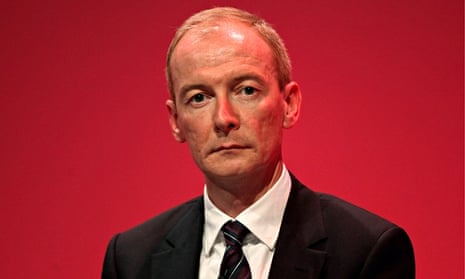



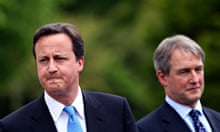
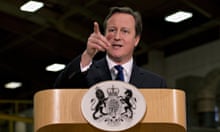
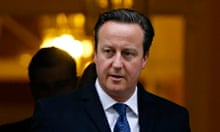

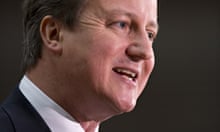


Comments (…)
Sign in or create your Guardian account to join the discussion